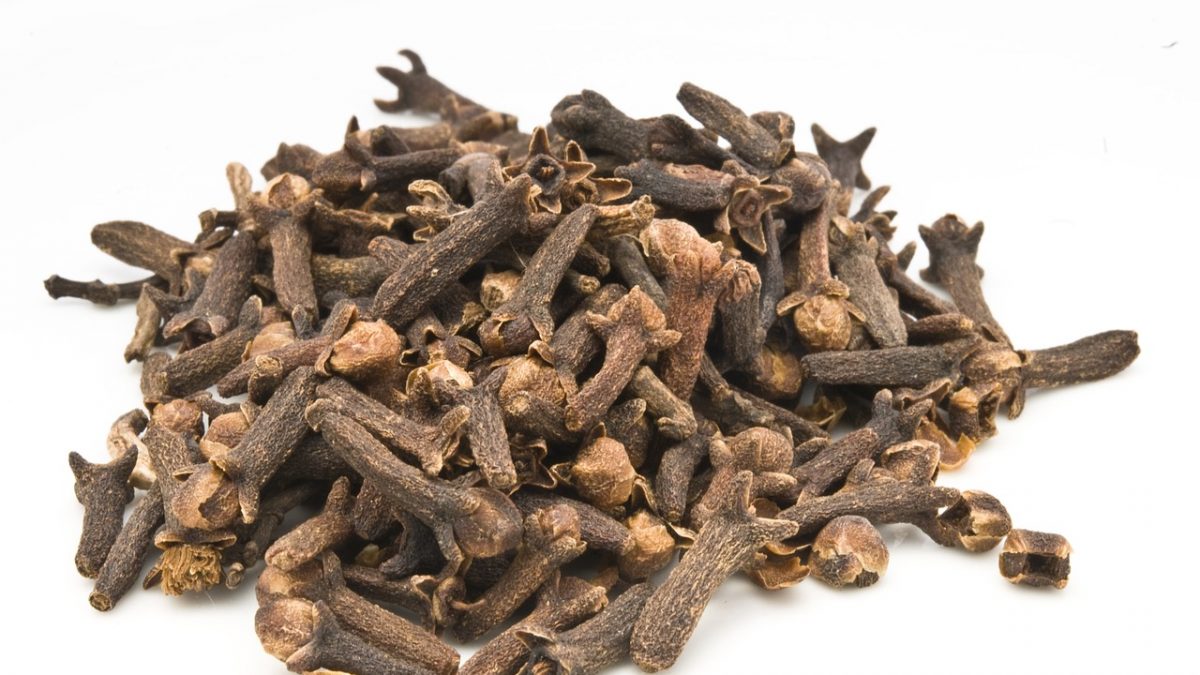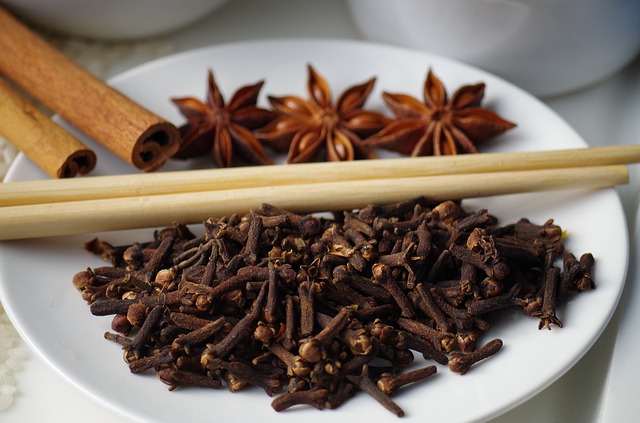Table of Contents
Cloves – Overview
Cloves are a spice complete from the flower outgrowths of an evergreen tree named, correctly enough, the clove tree (Syzygium aromaticum). Clove flower buds are collected in their immature state and then dried. Cloves can use whole or ground, and they have a robust, spicy flavour and aroma.
Whole cloves are formed like a small, reddish-brown spike, typically around 1 centimetre in length, with a bulbous top.
People commonly use cloves for toothache, pain during dental work, dental plaque, hangover, indigestion, and many other conditions, but no good scientific evidence supports these uses.
Side Effects
When Taken by Mouth: Clove is usually consumed in foods. There isn’t sufficient reliable data to know if taking cloves in more significant amounts is safe or the side effects.
When Applied to the Skin: Clove lubricant or ointment covering clove floret is maybe safe. But putting clove oil in the mouth or on the gum’s container sometimes causes irritation and gum damage. Using clove oil or cream on the skin can sometimes cause burning and skin irritation.
When Inhaled: Smoke from clove cigarettes is unsafe and can cause side effects such as breathing problems and lung disease.
Special Precautions and Warnings
Pregnancy and breast-feeding: There isn’t enough reliable info to know if clove is safe to use in more significant amounts when pregnant or breastfeeding. Stay on the safe side and stick to food amounts.
Children: oil is likely unsafe to take by mouth. Even small amounts of oil can cause severe side effects such as seizures, liver damage, and fluid imbalances.
Bleeding Disorders: oil contains a eugenol chemical that seems to slow blood clotting. Taking clove oil might cause bleeding in people with bleeding disorders.
Surgery: Cloves contain chemicals that might affect blood sugar levels and slow blood clotting. It might interfere with blood sugar control or cause bleeding during or after surgery. Stop using cloves at least two weeks before a scheduled surgery.
Diabetics and patients with liver disorders might want to take precautions before deciding to use cloves regularly.
Pregnant and lactating women must also be cautious before taking cloves since there are no human trials on the effect of cloves on pregnant women.
It is also vital to check for possible allergens or even take an allergy test before starting cloves.
A few compounds in cloves might interact with drugs too. So, you must check with a healthcare practitioner if you are taking any medications.
What Does It Taste Like?
Cloves are warm aromatic spices with an intense flavour and aroma. The flavour comes from the compound eugenol. On the tongue, you’ll detect sweetness, bitterness, and astringency (drying the mouth) with a noticeable amount of heat.
Similar warm spices include nutmeg, cinnamon, and allspice. These often combine in a pumpkin pie blend. Cloves are much more potent than these more-tepid flavour cousins, and therefore, minor issues a recipe or mix. Some people find the flavour overwhelming and choose to leave this spice out entirely.
Cooking
Whole or ground cloves flavour sauces, soups and rice dishes, notably some traditional Indian dishes, and it’s one of the components of garam masala. Even when cooked. The whole has a very hard, woody texture that would be unpleasant to bite into. The whole is either removed before serving or picked out of the dish.
Cloves with cinnamon or nutmeg, but in general, it’s a good idea to use sparingly. Cloves also feature in many desserts, especially ground cloves, particularly around the holidays. Think eggnog or pumpkin pie spice.
Uses of Cloves
Every day non-culinary use of the kretek cigarette is produced in Indonesia. 1 In the traditional medicine of non-Western cultures, is used in Indian Ayurvedic medicine and Chinese medicine as a warming and stimulating substance—the essential oil in aromatherapy for stress relief.
Cloves in small jars in the spice section of the supermarket. You will see both the whole and the ground. But you might be able to find them offered for a lower cost in the Hispanic food section, where they as de colour, or simply.
International grocery stores also often sell for far less than they will in the supermarket. Some speciality markets offer Penang which is a gourmet hand to ensure each one.
Health Benefits of Cloves
Cloves have long uses in home remedies to treat toothache pain.2 The eugenol that provides the flavour of cloves is also a pain reliever and can help relieve inflammation.2 Look for clove oil in the tooth care section of a drug store.
Be aware that it can be toxic for children, so keep any clove oil out of reach and use only child-safe, diluted preparations on children.3 Read the directions carefully and consult your dentist or paediatrician if you have any doubt about safety.
Conclusion
Cloves are pretty helpful for the sexual health of both men and women. It is an antioxidant, anti-microbial, anti-fungal, anti-viral, anti-nociceptive, immunomodulatory and anti-carcinogenic and helps improve libido, helps in nervous stimulation, improves sperm count, sperm motility and overall sexual health.
However, there is limited research on the dosage and effects of s on humans. So, it is best to consult a healthcare practitioner before you introduce yourself to your daily regimen.
Also Read: A Price – Definition, Challenging, Levels, And More


